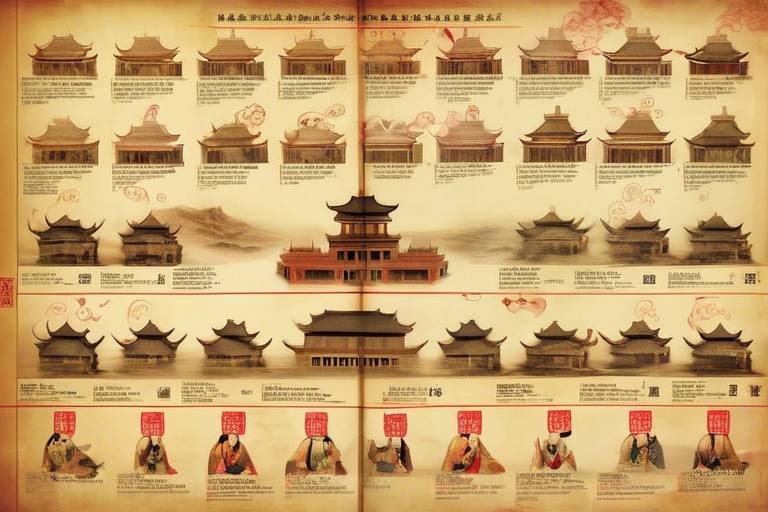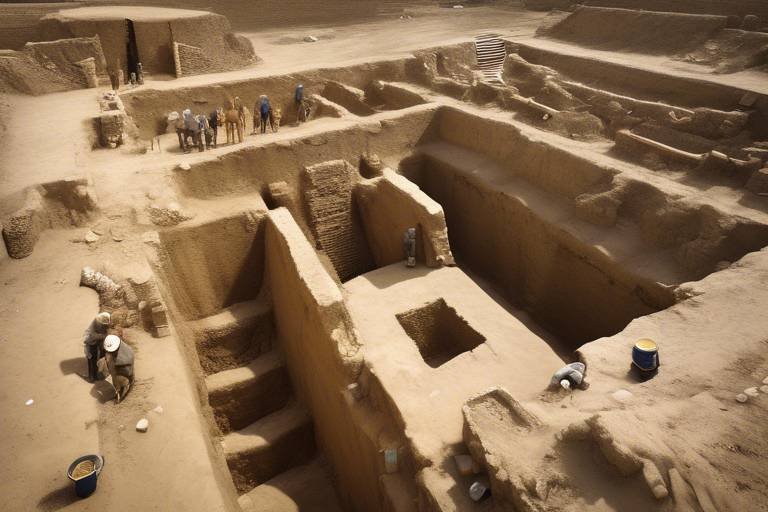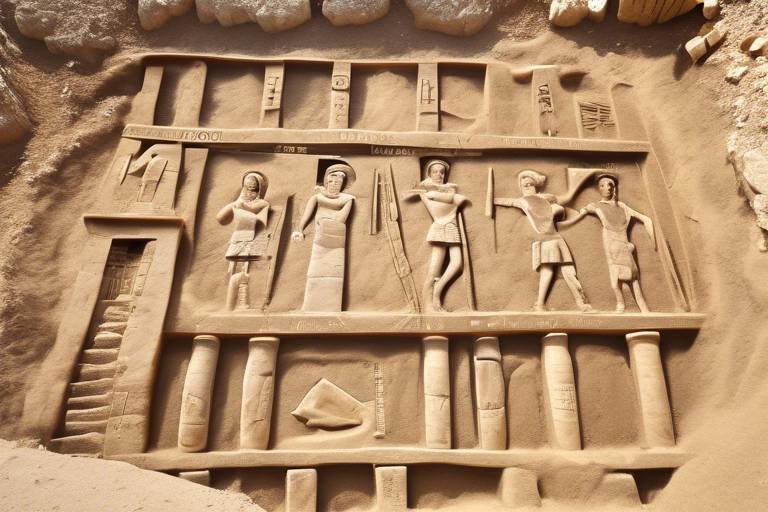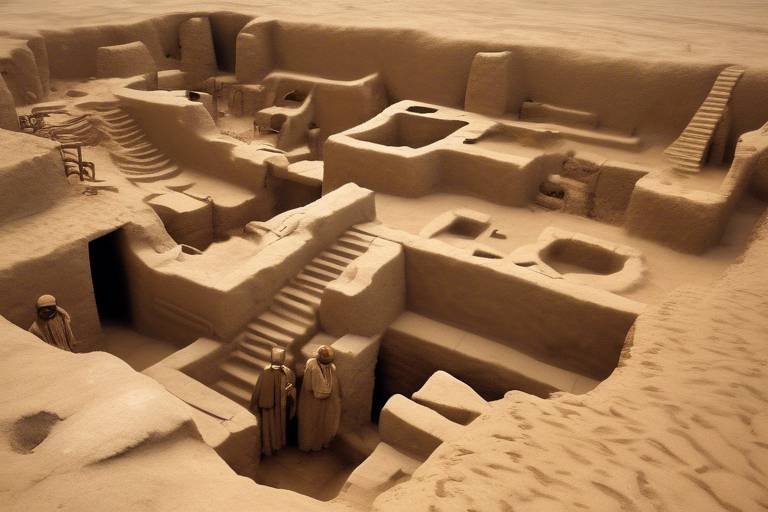The Misconception of the “Noble Savage” in Archaeology
When delving into the realm of archaeology, one cannot ignore the pervasive presence of the concept of the “Noble Savage.” This notion, deeply rooted in historical narratives and romanticized ideals, has long colored our understanding of prehistoric societies and indigenous cultures. However, as we peel back the layers of this misconception, a more complex and troubling picture emerges.
The idea of the Noble Savage can be traced back to colonialist influences, where indigenous peoples were often portrayed as inherently pure, virtuous, and untainted by civilization. This portrayal served a dual purpose – justifying the exploitation and domination of these communities while also perpetuating a narrative of superiority among colonizers. The consequences of such misrepresentations reverberate through time, shaping archaeological interpretations and perpetuating harmful stereotypes.
In modern times, there has been a growing chorus of critiques against the Noble Savage concept in archaeology. Scholars and activists alike are pushing for a reevaluation of how we approach the study of prehistoric societies, advocating for more inclusive and respectful practices that center indigenous voices and perspectives. It is crucial to recognize the impact of these stereotypes on cultural heritage and identity, and to work towards dismantling the harmful narratives that have long overshadowed the field of archaeology.
As we navigate the complexities of the Noble Savage myth, it becomes evident that alternative narratives are not only desirable but necessary. By challenging the traditional frameworks that have upheld this misconception, we open the door to a more nuanced and culturally sensitive understanding of the past. This shift requires a deep reflection on the ethical implications of our research practices and a commitment to promoting diverse and inclusive narratives that honor the complexities of indigenous cultures.
Looking towards the future, there is a glimmer of hope in the potential for archaeology to move beyond the confines of the Noble Savage trope. By embracing diverse perspectives, engaging with indigenous communities, and fostering a spirit of collaboration and respect, we can pave the way for a more equitable and inclusive approach to studying the past. It is time to break free from the shackles of outdated stereotypes and forge a new path towards a more enlightened and empathetic archaeology.
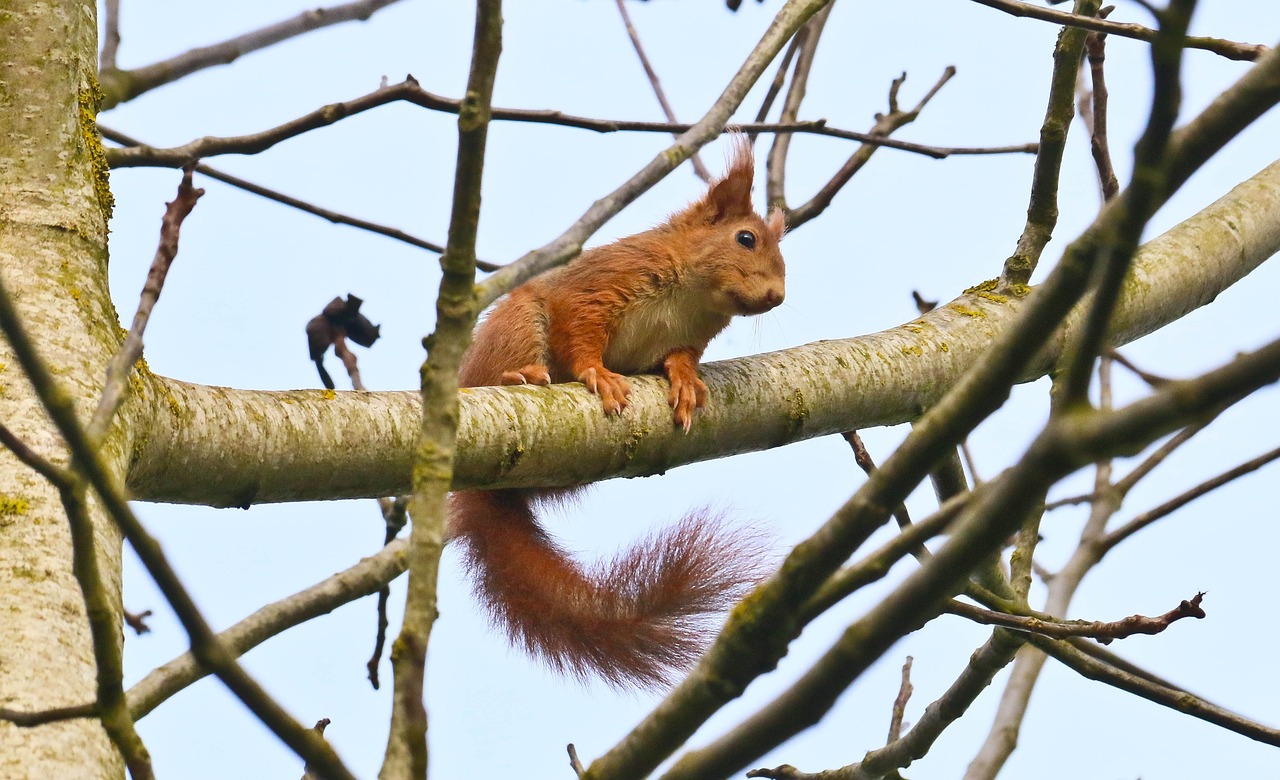
Noble Savage
The concept of the "Noble Savage" has been a prevalent theme in archaeological discourse, often romanticizing indigenous peoples as inherently pure and noble. This notion stems from a historical narrative that portrays prehistoric societies as idyllic and harmonious, untouched by the corrupting influences of civilization. However, this idealized image of the Noble Savage has been widely criticized for its oversimplification and misrepresentation of indigenous cultures.
Rooted in colonialist ideologies, the concept of the Noble Savage served to justify the exploitation and domination of indigenous peoples by portraying them as noble but primitive beings in need of civilization. This narrative not only perpetuated harmful stereotypes but also influenced archaeological interpretations by framing indigenous cultures through a lens of otherness and exoticism.
Modern critiques of the Noble Savage concept in archaeology have highlighted the need to decolonize archaeological practices and narratives. By challenging the romanticized view of indigenous peoples, scholars aim to promote more nuanced and respectful representations of prehistoric societies that acknowledge the complexity and diversity of indigenous cultures.
From the perspective of indigenous communities, the Noble Savage stereotype has significant implications for cultural heritage and identity. By reducing indigenous peoples to simplistic caricatures, this myth undermines the rich and multifaceted histories of indigenous societies, perpetuating a legacy of marginalization and erasure.
Alternative narratives that challenge the Noble Savage myth prioritize indigenous voices and perspectives in the interpretation of archaeological findings. By centering indigenous knowledge and experiences, these frameworks offer a more holistic understanding of prehistoric societies that goes beyond stereotypes and embraces cultural diversity.
When considering the ethical implications of perpetuating the Noble Savage stereotype in archaeological research, it becomes essential to promote respectful and inclusive narratives that empower indigenous communities and prioritize their agency in shaping historical interpretations. Moving forward, archaeology has the potential to embrace more culturally sensitive approaches that recognize the complexities of the past and engage with indigenous perspectives in a meaningful and collaborative manner.

concept in archaeology, shedding light on its problematic nature and impact on indigenous communities.
The concept of the "Noble Savage" in archaeology delves into the historical context and modern interpretations surrounding this idea, which has significant implications for indigenous communities. This concept, often romanticized and oversimplified, has been a subject of controversy due to its problematic nature and the impact it has on how indigenous cultures are perceived and studied.
Originating from colonialist ideologies, the notion of the Noble Savage has deep roots in archaeological discourse. It is closely tied to narratives of prehistoric societies as idyllic and untainted by civilization, perpetuating a view that indigenous peoples were inherently noble and pure. However, this idealized image often overlooks the complexities and diversity of indigenous cultures.
Colonial influences have played a crucial role in shaping the perception of indigenous peoples as Noble Savages. By portraying them as noble but primitive beings, colonial powers justified their exploitation and domination, further marginalizing and dehumanizing indigenous communities.
Examining the impact of the Noble Savage myth on archaeological interpretations reveals how it continues to influence the way findings are understood and presented. This perpetuation of stereotypes about indigenous cultures can hinder genuine understanding and appreciation of their rich histories and contributions to human civilization.
Modern critiques of the Noble Savage concept in archaeology highlight the need to challenge and deconstruct these outdated narratives. Efforts to decolonize archaeological practices aim to rectify the biases and injustices perpetuated by such stereotypes and promote more inclusive and respectful approaches to studying the past.
Community perspectives from indigenous groups offer valuable insights into the harmful effects of the Noble Savage stereotype on cultural heritage and identity. By amplifying indigenous voices and acknowledging their agency in shaping their own narratives, archaeologists can move towards a more equitable and collaborative engagement with indigenous communities.
Exploring alternative narratives that challenge the Noble Savage myth is essential in fostering a more nuanced understanding of prehistoric societies. By prioritizing indigenous perspectives and knowledge systems, archaeologists can contribute to a more holistic and accurate representation of the past, free from colonial biases and stereotypes.
Discussing the ethical considerations of perpetuating the Noble Savage stereotype in archaeological research is crucial for promoting responsible and inclusive practices. Recognizing the impact of such narratives on indigenous communities and striving for cultural sensitivity and respect are essential steps towards creating a more equitable and ethical archaeological discipline.
Looking towards the future, archaeology has the potential to move beyond the limitations of the Noble Savage trope and embrace more culturally sensitive and nuanced approaches to studying the past. By centering indigenous voices and fostering genuine partnerships with local communities, archaeologists can contribute to a more inclusive and equitable representation of human history.
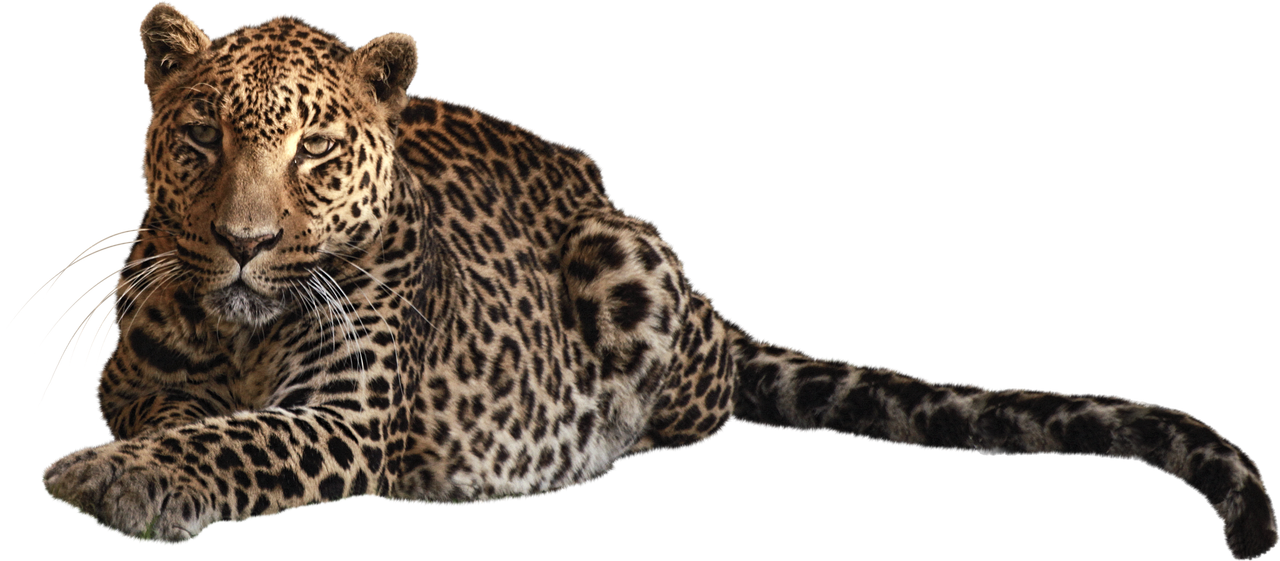
Origin of the Concept
The concept of the "Noble Savage" in archaeology has a long and complex history that traces back to colonialist influences and romanticized views of prehistoric societies. The idea of the Noble Savage emerged as a way to portray indigenous peoples as inherently good, pure, and noble, living in harmony with nature and untouched by the corrupting influences of civilization.
Rooted in the colonial ideologies of the past, the Noble Savage myth served to justify the exploitation and domination of indigenous communities by portraying them as exotic, primitive, and in need of civilizing influence. This distorted perception not only shaped early archaeological interpretations but also perpetuated harmful stereotypes about indigenous cultures.
Colonialist narratives often painted indigenous peoples as noble savages to support the agenda of colonization and resource extraction. This portrayal not only dehumanized indigenous communities but also erased their complex histories, rich cultural traditions, and sophisticated societies.
As archaeology evolved as a discipline, modern critiques have highlighted the problematic nature of the Noble Savage concept and its impact on indigenous communities. Efforts to decolonize archaeological practices and narratives have sought to challenge traditional interpretations and prioritize indigenous perspectives in the study of the past.
Alternative narratives that challenge the Noble Savage myth have emerged, emphasizing the importance of recognizing the agency, resilience, and diversity of indigenous peoples throughout history. By centering indigenous voices and perspectives, archaeologists can move towards more inclusive and culturally sensitive approaches to understanding prehistoric societies.
It is crucial to consider the ethical implications of perpetuating the Noble Savage stereotype in archaeological research. By promoting respectful and inclusive narratives that acknowledge the complexities of indigenous cultures, archaeologists can contribute to a more equitable and just representation of the past.
Looking towards the future, archaeology has the potential to move beyond the limitations of the Noble Savage trope and embrace more nuanced and multifaceted interpretations of the past. By engaging with diverse perspectives and challenging existing biases, archaeologists can create a more holistic understanding of prehistoric societies that honors the contributions and legacies of indigenous communities.
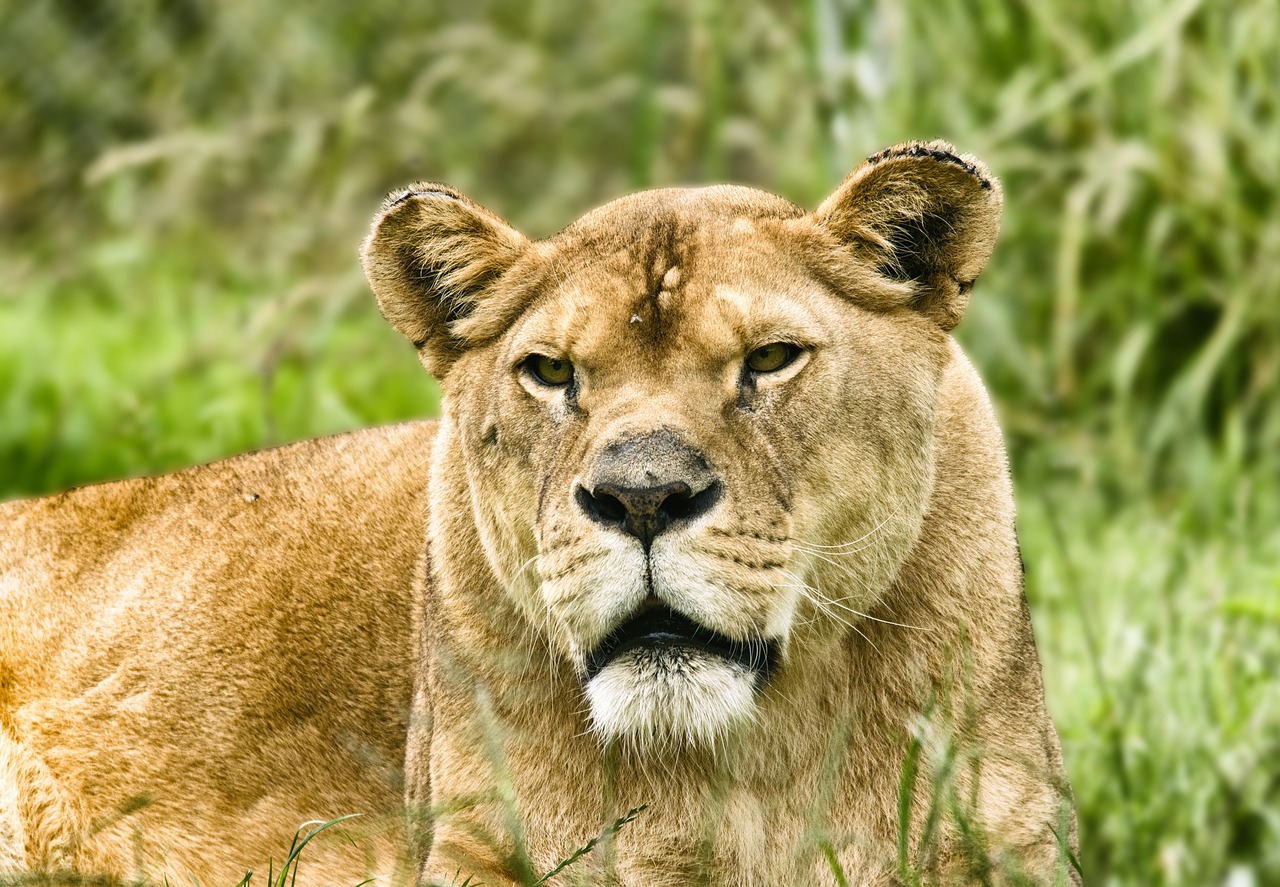
Noble Savage
Exploring the historical context and modern interpretations of the concept in archaeology, shedding light on its problematic nature and impact on indigenous communities.
Tracing the roots of the idea in archaeological discourse and its connection to colonialist narratives and romanticized views of prehistoric societies.
Discussing how colonial ideologies shaped the perception of indigenous peoples as noble savages to justify exploitation and domination.
Examining how the myth influences interpretations of archaeological findings and perpetuates stereotypes about indigenous cultures.
Exploring contemporary criticisms of the concept in archaeology and efforts to decolonize archaeological practices and narratives.
Highlighting the perspectives of indigenous communities on the stereotype and its implications for cultural heritage and identity.
Exploring alternative frameworks for understanding prehistoric societies that challenge the myth and prioritize indigenous voices and perspectives.
Discussing the ethical implications of perpetuating the stereotype in archaeological research and the importance of promoting respectful and inclusive narratives.
Looking ahead at the potential for archaeology to move beyond the trope and embrace more nuanced and culturally sensitive approaches to studying the past.
The concept of the has deep roots in history, often portraying indigenous peoples as inherently pure and noble, untouched by civilization's corrupting influences. This romanticized view has been used to justify colonization and exploitation, perpetuating harmful stereotypes and erasing the complexity of indigenous cultures. While the idea of the may seem idealistic, it is essential to critically examine its impact on archaeological interpretations and the narratives we construct about the past.
Stay tuned for the frequently asked questions section!
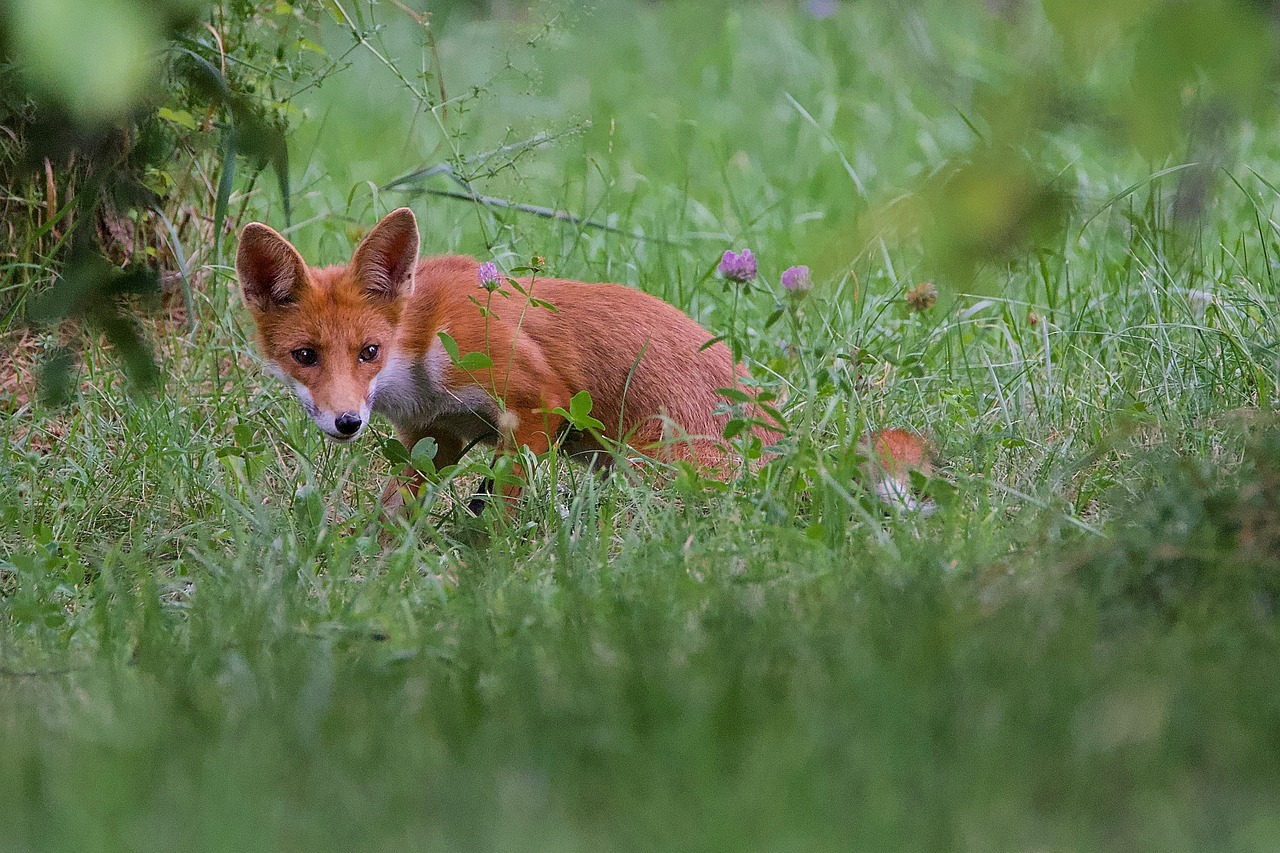
idea in archaeological discourse and its connection to colonialist narratives and romanticized views of prehistoric societies.
Exploring the historical context and modern interpretations of the Noble Savage concept in archaeology, shedding light on its problematic nature and impact on indigenous communities.
Tracing the roots of the Noble Savage idea in archaeological discourse and its connection to colonialist narratives and romanticized views of prehistoric societies.
Discussing how colonial ideologies shaped the perception of indigenous peoples as noble savages to justify exploitation and domination.
Examining how the Noble Savage myth influences interpretations of archaeological findings and perpetuates stereotypes about indigenous cultures.
Exploring contemporary criticisms of the Noble Savage concept in archaeology and efforts to decolonize archaeological practices and narratives.
Highlighting the perspectives of indigenous communities on the Noble Savage stereotype and its implications for cultural heritage and identity.
Exploring alternative frameworks for understanding prehistoric societies that challenge the Noble Savage myth and prioritize indigenous voices and perspectives.
Discussing the ethical implications of perpetuating the Noble Savage stereotype in archaeological research and the importance of promoting respectful and inclusive narratives.
Looking ahead at the potential for archaeology to move beyond the Noble Savage trope and embrace more nuanced and culturally sensitive approaches to studying the past.
The Noble Savage concept in archaeological discourse has deep roots intertwined with colonialist narratives and romanticized views of prehistoric societies. It emerged as a way to idealize indigenous peoples as inherently pure and noble, contrasting them with the perceived corruption of Western societies. This notion not only perpetuated stereotypes but also served to justify colonial exploitation and domination. By romanticizing prehistoric societies as idyllic and harmonious, the Noble Savage concept reinforced a distorted view of history, overlooking the complexities and diversity of indigenous cultures.
1. What are some common misconceptions associated with the Noble Savage concept?
2. How do indigenous communities view the perpetuation of the Noble Savage stereotype in archaeology?
3. What steps can archaeologists take to decolonize their practices and narratives?
4. Why is it important to challenge the Noble Savage myth in archaeological research?
5. How can alternative narratives help in promoting more inclusive and respectful representations of indigenous cultures?

Colonialist Influences
Colonialist Influences have played a significant role in shaping the perception of indigenous peoples as noble savages within archaeological discourse. During the era of colonialism, European powers often portrayed indigenous communities as inherently pure and close to nature, contrasting them with their own supposedly corrupt societies. This depiction served as a justification for the exploitation and domination of these communities, reinforcing the narrative of the noble savage as a means of justifying colonial control and resource extraction.
Furthermore, colonial ideologies imposed a hierarchical view of civilization, with Western societies positioned at the top of the hierarchy and indigenous cultures deemed inferior. This perspective not only influenced the interpretation of archaeological findings but also perpetuated stereotypes about indigenous peoples as primitive, exotic, and in need of civilizing influences. The noble savage myth thus became intertwined with colonialist agendas, reinforcing power dynamics and erasing the complexities of indigenous cultures.
Moreover, the romanticized portrayal of indigenous peoples as noble savages served to dehumanize them, reducing their rich and diverse cultures to simplistic stereotypes. This reductionism not only distorted archaeological interpretations but also had lasting consequences for the social, political, and cultural identities of indigenous communities. By framing indigenous peoples as inherently noble and untainted by civilization, colonial powers justified their own actions while simultaneously erasing the agency and autonomy of indigenous societies.
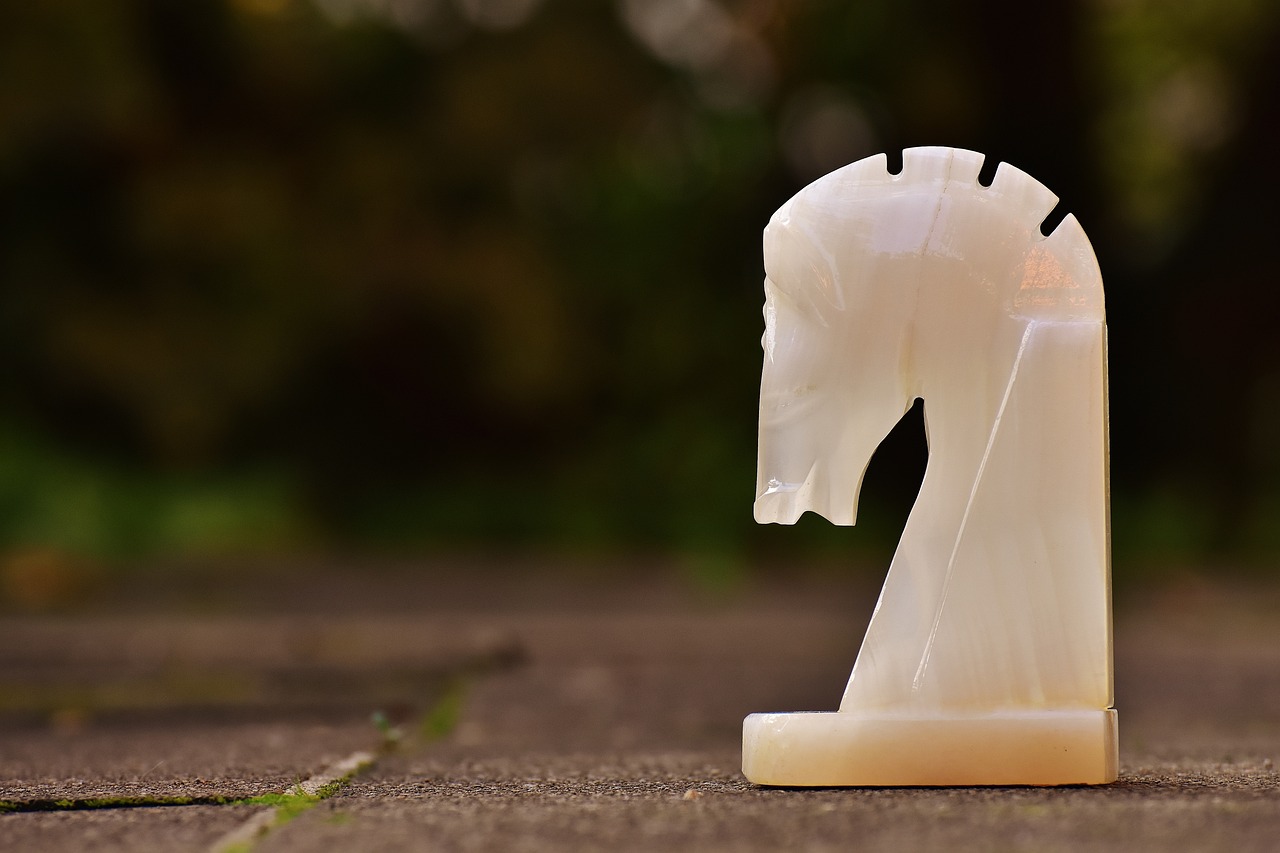
noble savages
The concept of "noble savages" has long been a contentious topic in archaeology, often portraying indigenous peoples as inherently pure and virtuous. This stereotype, rooted in colonialist ideologies, has had far-reaching implications on how we view and interpret prehistoric societies. The idea of noble savages has been used to justify the exploitation and domination of indigenous communities, perpetuating harmful stereotypes and erasing the complexities of their cultures and histories.
Archaeological interpretations influenced by the noble savage myth tend to romanticize indigenous peoples, overlooking the diversity and sophistication of their societies. This narrow perspective not only distorts our understanding of the past but also marginalizes indigenous voices and perspectives in archaeological research. It is crucial to critically examine and challenge these ingrained narratives to move towards a more inclusive and respectful approach to studying ancient cultures.
Modern critiques of the noble savage concept in archaeology highlight the need to decolonize archaeological practices and narratives. By acknowledging the harmful legacy of colonialist influences, archaeologists can work towards creating more ethical and culturally sensitive interpretations of the past. This involves actively engaging with indigenous communities and centering their knowledge and experiences in archaeological research.
Alternative narratives that challenge the noble savage myth offer a more nuanced and balanced understanding of prehistoric societies. These frameworks prioritize indigenous perspectives and emphasize the agency and resilience of indigenous peoples throughout history. By shifting away from simplistic and stereotypical portrayals, archaeologists can contribute to a more accurate and inclusive representation of ancient cultures.
When considering the ethical implications of perpetuating the noble savage stereotype in archaeological research, it is essential to prioritize respectful and inclusive narratives. This requires ongoing reflection on the power dynamics at play in archaeological practice and a commitment to amplifying marginalized voices. By promoting diverse perspectives and challenging entrenched biases, archaeologists can work towards creating a more equitable and just approach to studying the past.
Looking ahead, the future of archaeology lies in moving beyond the noble savage trope and embracing more culturally sensitive approaches to studying ancient civilizations. By centering indigenous knowledge and fostering collaboration with local communities, archaeologists can contribute to a more holistic understanding of the past. It is through these efforts that archaeology can truly fulfill its potential as a tool for uncovering and preserving diverse cultural heritage.
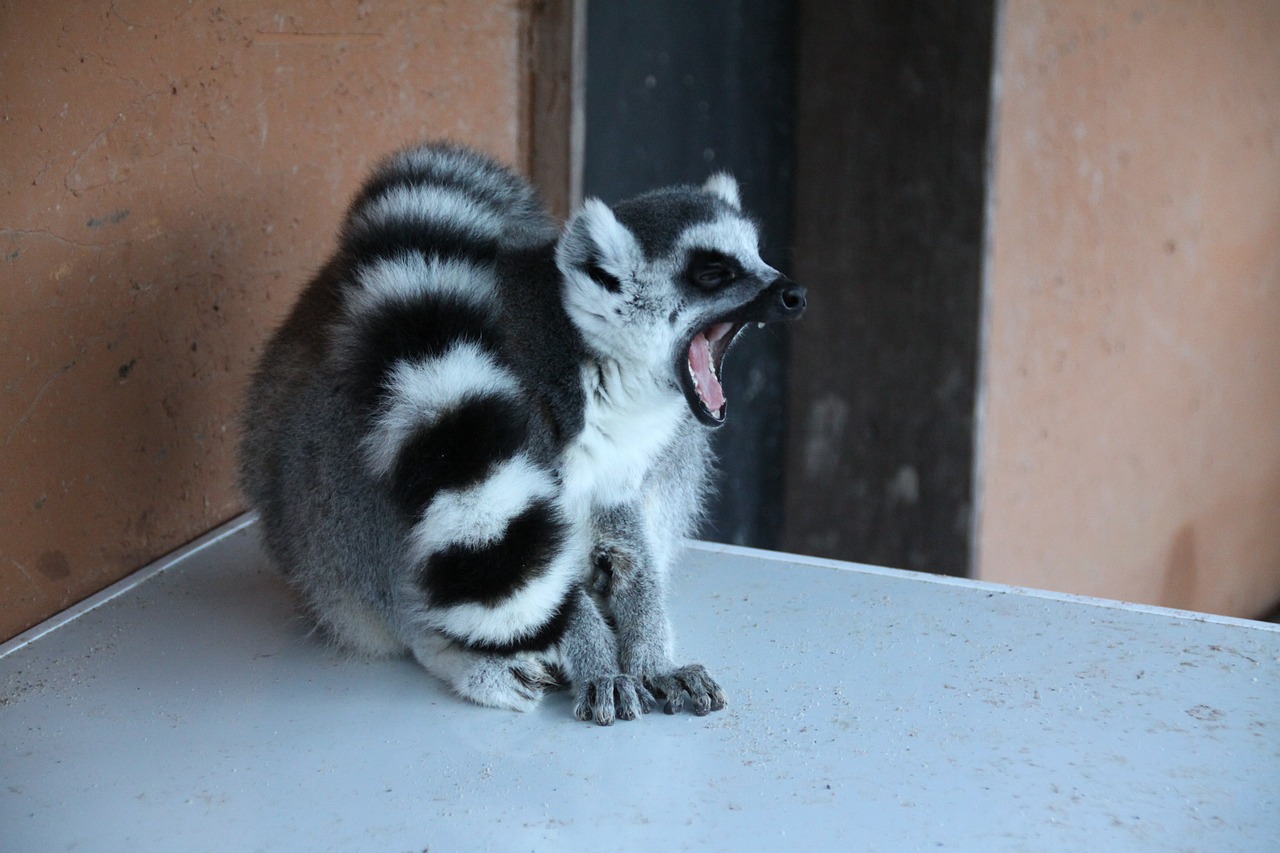
to justify exploitation and domination.
Colonial ideologies played a significant role in shaping the perception of indigenous peoples as noble savages to justify exploitation and domination. These ideologies propagated the belief that indigenous communities were inherently pure, innocent, and uncivilized, thus providing a moral excuse for colonial powers to subjugate and exploit them. By portraying indigenous peoples as noble savages, colonialists sought to legitimize their actions of domination and control over these communities, masking their true intentions under the guise of benevolence and civilizing missions.
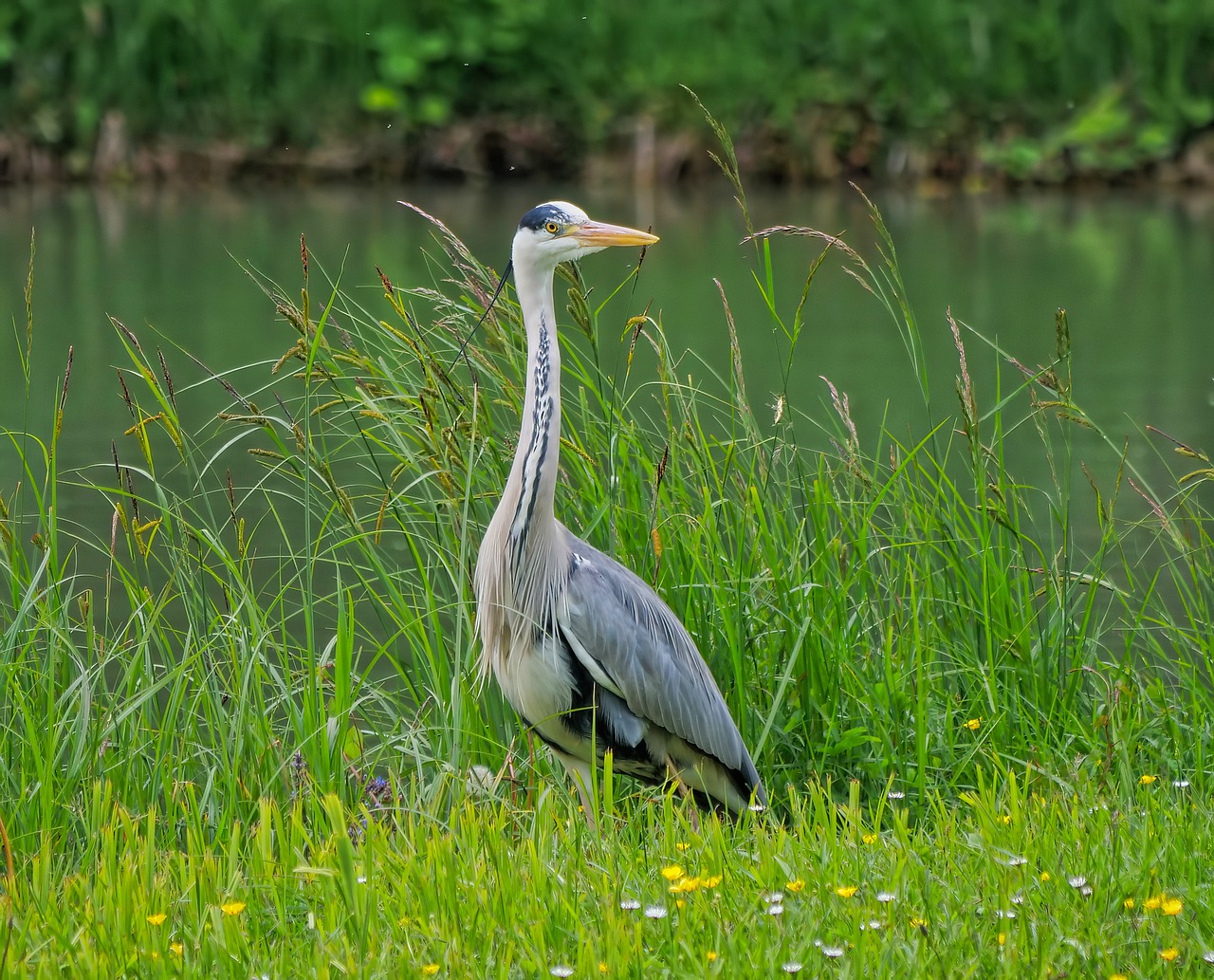
Impact on Archaeological Interpretations
Exploring the historical context and modern interpretations of the Noble Savage concept in archaeology, shedding light on its problematic nature and impact on indigenous communities.
Tracing the roots of the Noble Savage idea in archaeological discourse and its connection to colonialist narratives and romanticized views of prehistoric societies.
Discussing how colonial ideologies shaped the perception of indigenous peoples as noble savages to justify exploitation and domination.
Examining how the Noble Savage myth influences interpretations of archaeological findings and perpetuates stereotypes about indigenous cultures. This distortion in interpretation often leads to biased views of ancient societies, overlooking the complexity and diversity of indigenous civilizations. By painting indigenous peoples as inherently noble and simplistic, archaeological interpretations may overlook the rich cultural nuances and technological advancements present in these societies.
Exploring contemporary criticisms of the Noble Savage concept in archaeology and efforts to decolonize archaeological practices and narratives.
Highlighting the perspectives of indigenous communities on the Noble Savage stereotype and its implications for cultural heritage and identity.
Exploring alternative frameworks for understanding prehistoric societies that challenge the Noble Savage myth and prioritize indigenous voices and perspectives.
Discussing the ethical implications of perpetuating the Noble Savage stereotype in archaeological research and the importance of promoting respectful and inclusive narratives.
Looking ahead at the potential for archaeology to move beyond the Noble Savage trope and embrace more nuanced and culturally sensitive approaches to studying the past.

Noble Savage
Exploring the historical context and modern interpretations of the concept in archaeology, shedding light on its problematic nature and impact on indigenous communities.
Tracing the roots of the idea in archaeological discourse and its connection to colonialist narratives and romanticized views of prehistoric societies.
Discussing how colonial ideologies shaped the perception of indigenous peoples as noble savages to justify exploitation and domination.
Examining how the myth influences interpretations of archaeological findings and perpetuates stereotypes about indigenous cultures.
Exploring contemporary criticisms of the concept in archaeology and efforts to decolonize archaeological practices and narratives.
Highlighting the perspectives of indigenous communities on the stereotype and its implications for cultural heritage and identity.
Exploring alternative frameworks for understanding prehistoric societies that challenge the myth and prioritize indigenous voices and perspectives.
Discussing the ethical implications of perpetuating the stereotype in archaeological research and the importance of promoting respectful and inclusive narratives.
Looking ahead at the potential for archaeology to move beyond the trope and embrace more nuanced and culturally sensitive approaches to studying the past.
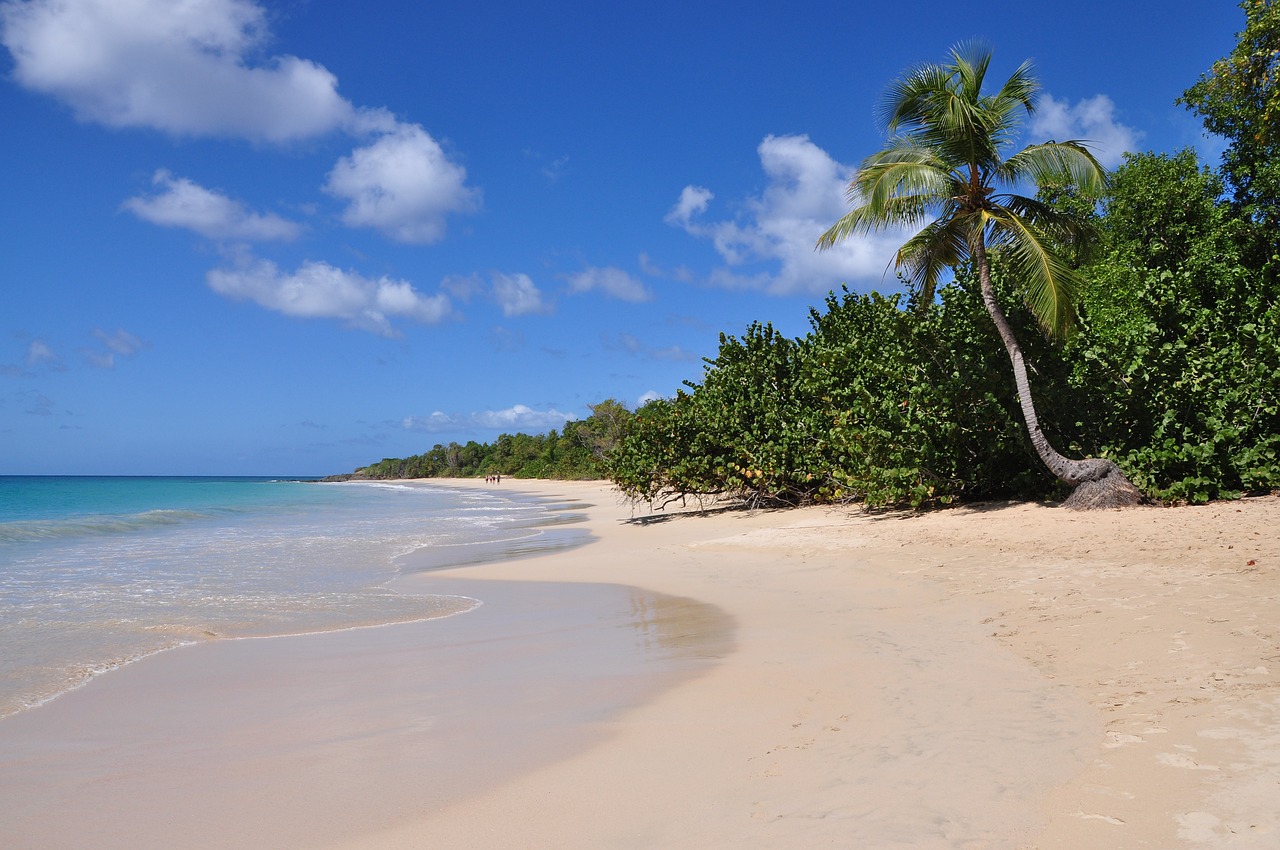
myth influences interpretations of archaeological findings and perpetuates stereotypes about indigenous cultures.
Exploring the historical context and modern interpretations of the Noble Savage concept in archaeology, shedding light on its problematic nature and impact on indigenous communities.
Tracing the roots of the Noble Savage idea in archaeological discourse and its connection to colonialist narratives and romanticized views of prehistoric societies.
Discussing how colonial ideologies shaped the perception of indigenous peoples as noble savages to justify exploitation and domination.
The myth influences interpretations of archaeological findings and perpetuates stereotypes about indigenous cultures. This misconception distorts the understanding of indigenous societies and their histories, often reducing complex civilizations to simplistic and inaccurate portrayals. By perpetuating the idea of the Noble Savage, archaeologists risk overlooking the rich diversity and sophistication of indigenous cultures, reinforcing harmful stereotypes that undermine the true complexity of these societies.
Exploring contemporary criticisms of the Noble Savage concept in archaeology and efforts to decolonize archaeological practices and narratives.
Highlighting the perspectives of indigenous communities on the Noble Savage stereotype and its implications for cultural heritage and identity.
Exploring alternative frameworks for understanding prehistoric societies that challenge the Noble Savage myth and prioritize indigenous voices and perspectives.
Discussing the ethical implications of perpetuating the Noble Savage stereotype in archaeological research and the importance of promoting respectful and inclusive narratives.
Looking ahead at the potential for archaeology to move beyond the Noble Savage trope and embrace more nuanced and culturally sensitive approaches to studying the past.
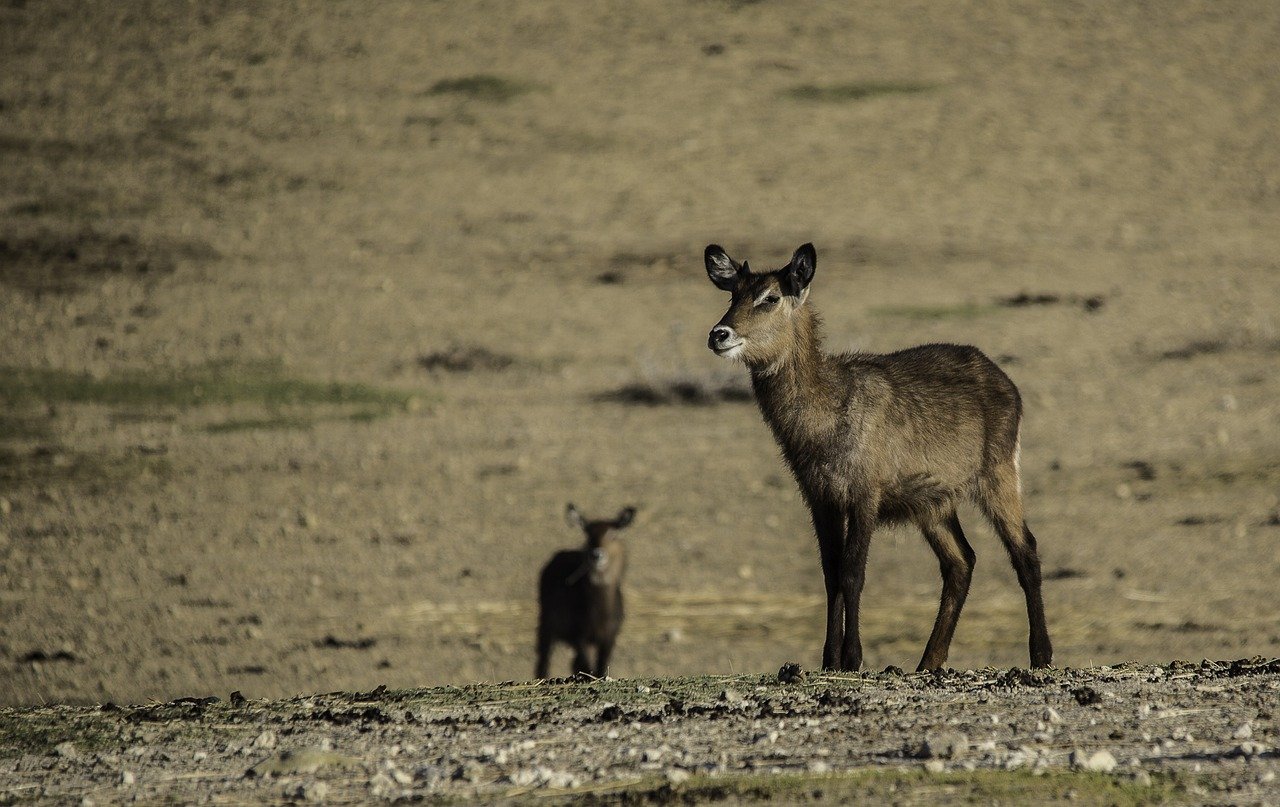
Modern Critiques
Exploring the historical context and modern interpretations of the Noble Savage concept in archaeology, shedding light on its problematic nature and impact on indigenous communities.
Tracing the roots of the Noble Savage idea in archaeological discourse and its connection to colonialist narratives and romanticized views of prehistoric societies.
Discussing how colonial ideologies shaped the perception of indigenous peoples as noble savages to justify exploitation and domination.
Examining how the Noble Savage myth influences interpretations of archaeological findings and perpetuates stereotypes about indigenous cultures.
Exploring contemporary criticisms of the Noble Savage concept in archaeology and efforts to decolonize archaeological practices and narratives.
Highlighting the perspectives of indigenous communities on the Noble Savage stereotype and its implications for cultural heritage and identity.
Exploring alternative frameworks for understanding prehistoric societies that challenge the Noble Savage myth and prioritize indigenous voices and perspectives.
Discussing the ethical implications of perpetuating the Noble Savage stereotype in archaeological research and the importance of promoting respectful and inclusive narratives.
Looking ahead at the potential for archaeology to move beyond the Noble Savage trope and embrace more nuanced and culturally sensitive approaches to studying the past.

Noble Savage
Exploring the historical context and modern interpretations of the concept in archaeology, shedding light on its problematic nature and impact on indigenous communities.
Tracing the roots of the idea in archaeological discourse and its connection to colonialist narratives and romanticized views of prehistoric societies.
Discussing how colonial ideologies shaped the perception of indigenous peoples as noble savages to justify exploitation and domination.
Examining how the myth influences interpretations of archaeological findings and perpetuates stereotypes about indigenous cultures.
Exploring contemporary criticisms of the concept in archaeology and efforts to decolonize archaeological practices and narratives.
Highlighting the perspectives of indigenous communities on the stereotype and its implications for cultural heritage and identity.
Exploring alternative frameworks for understanding prehistoric societies that challenge the myth and prioritize indigenous voices and perspectives.
Discussing the ethical implications of perpetuating the stereotype in archaeological research and the importance of promoting respectful and inclusive narratives.
Looking ahead at the potential for archaeology to move beyond the trope and embrace more nuanced and culturally sensitive approaches to studying the past.

concept in archaeology and efforts to decolonize archaeological practices and narratives.
Concepts in archaeology are constantly evolving, reflecting the changing perspectives and priorities of the field. The notion of the "Noble Savage" has long been intertwined with archaeological discourse, shaping how we view ancient societies and indigenous cultures. However, there is a growing recognition of the problematic nature of this concept and the need to decolonize archaeological practices and narratives.
Efforts to decolonize archaeology involve challenging traditional interpretations that perpetuate stereotypes and marginalize indigenous voices. By reexamining the biases embedded in archaeological research and embracing more inclusive methodologies, scholars aim to create a more equitable and respectful approach to studying the past.
Decolonizing archaeological practices also involves engaging with local communities and incorporating their perspectives into research and interpretation. This collaborative approach not only enriches our understanding of the past but also empowers indigenous communities to reclaim their heritage and challenge the dominant narratives that have long overshadowed their voices.
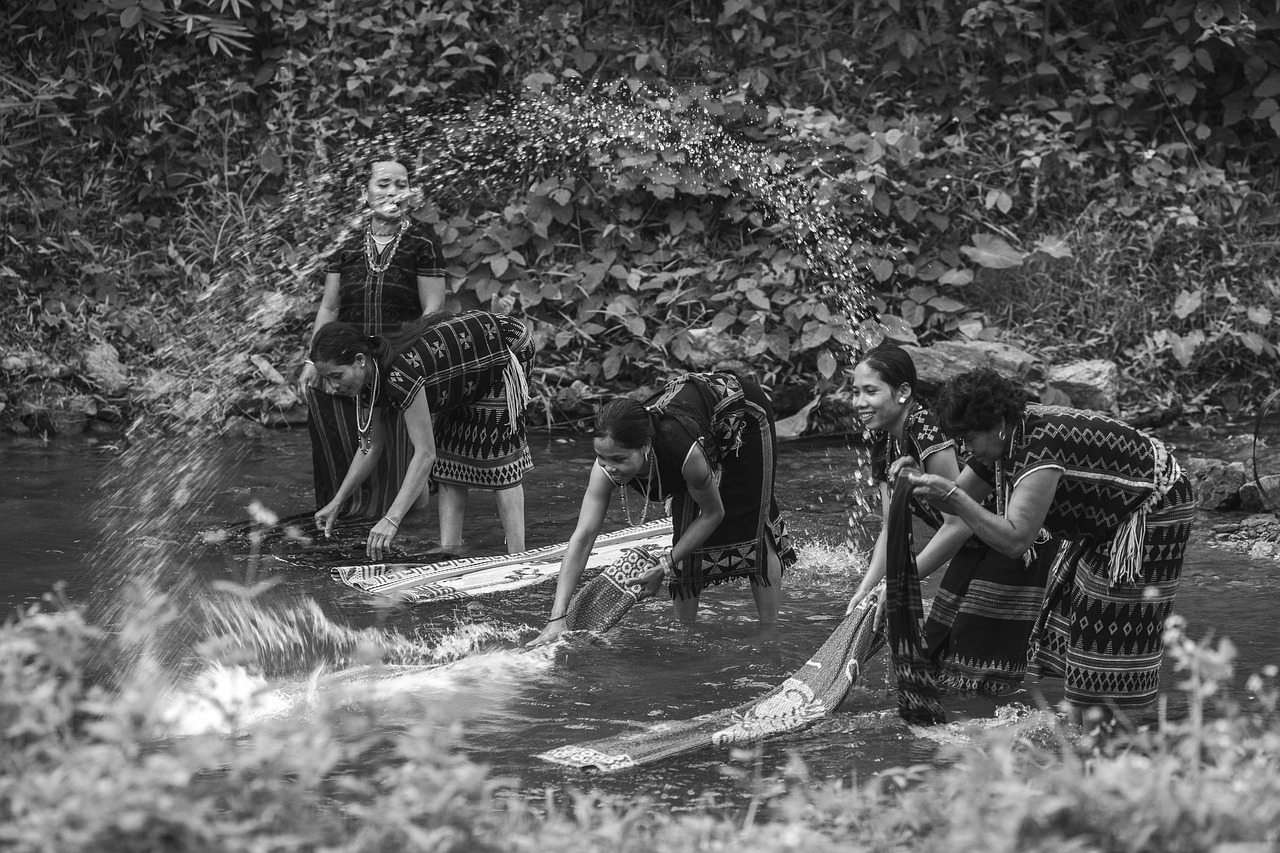
Community Perspectives
Community Perspectives on the Noble Savage Stereotype
When delving into the Noble Savage concept in archaeology, it is crucial to consider the viewpoints of indigenous communities who have often been misrepresented and marginalized by this enduring stereotype. For generations, indigenous peoples have been portrayed as simplistic, harmonious beings living in perfect harmony with nature. However, this portrayal fails to capture the complexities and diversity of indigenous cultures and histories. It reduces rich and vibrant societies to a romanticized caricature, denying them agency and perpetuating harmful stereotypes.
Impact on Cultural Heritage and Identity
The perpetuation of the Noble Savage myth not only distorts historical narratives but also has tangible effects on the cultural heritage and identity of indigenous communities. By framing indigenous peoples as inherently noble and primitive, this stereotype diminishes the achievements and resilience of these communities throughout history. It reinforces a narrative of paternalism and exoticism, further alienating indigenous voices from the discourse on their own past and present realities.
Challenging Stereotypes through Education and Advocacy
To combat the harmful effects of the Noble Savage stereotype, it is essential to amplify the voices of indigenous scholars, activists, and community members. By centering indigenous perspectives in archaeological research and public discourse, we can challenge outdated narratives and promote a more inclusive and respectful understanding of the past. Education, advocacy, and collaboration with indigenous communities are key steps towards decolonizing archaeology and fostering a more equitable and ethical approach to studying history.
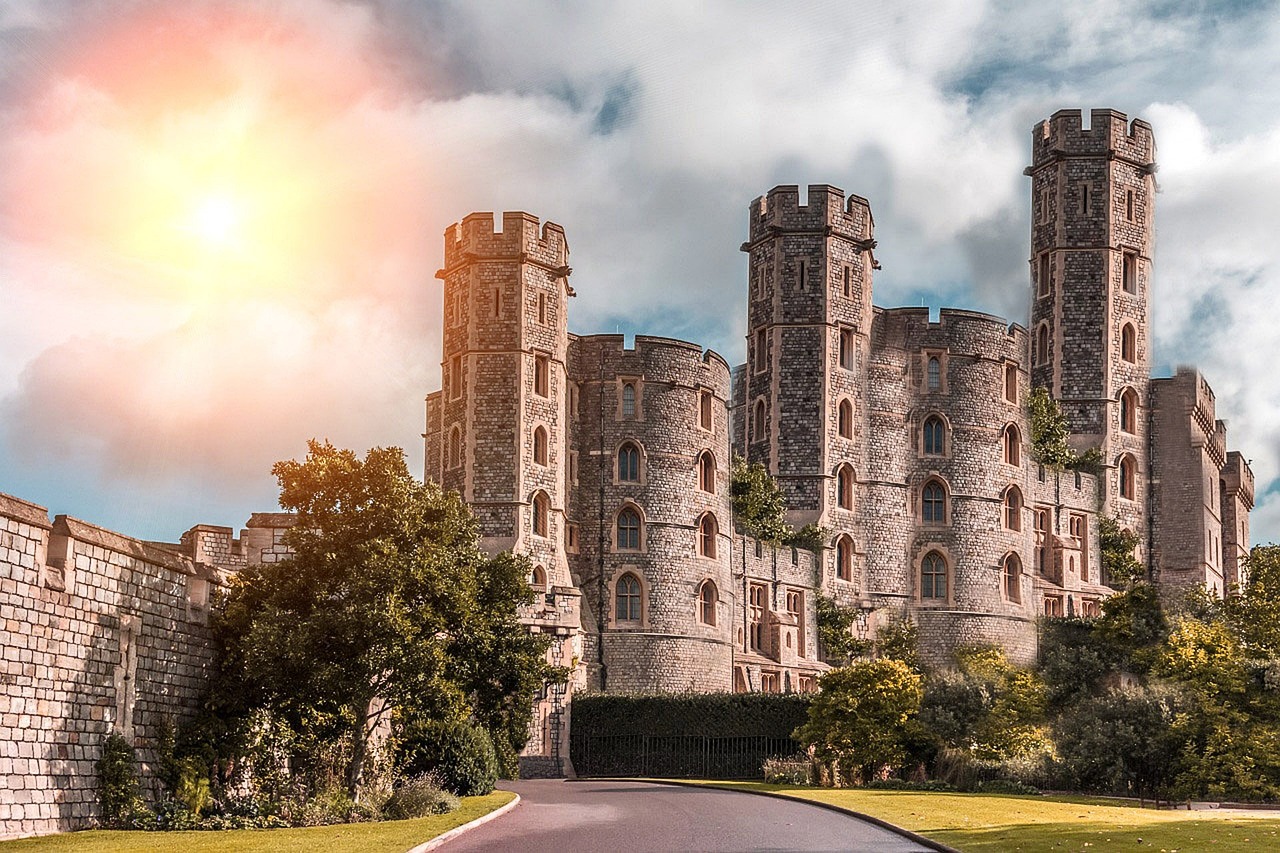
Noble Savage
Exploring the historical context and modern interpretations of the concept in archaeology, shedding light on its problematic nature and impact on indigenous communities.
Tracing the roots of the idea in archaeological discourse and its connection to colonialist narratives and romanticized views of prehistoric societies.
Discussing how colonial ideologies shaped the perception of indigenous peoples as noble savages to justify exploitation and domination.
Examining how the myth influences interpretations of archaeological findings and perpetuates stereotypes about indigenous cultures.
Exploring contemporary criticisms of the concept in archaeology and efforts to decolonize archaeological practices and narratives.
Highlighting the perspectives of indigenous communities on the stereotype and its implications for cultural heritage and identity.
Exploring alternative frameworks for understanding prehistoric societies that challenge the myth and prioritize indigenous voices and perspectives.
Discussing the ethical implications of perpetuating the stereotype in archaeological research and the importance of promoting respectful and inclusive narratives.
Looking ahead at the potential for archaeology to move beyond the trope and embrace more nuanced and culturally sensitive approaches to studying the past.
The concept of the has been deeply ingrained in archaeological discourse, portraying indigenous peoples as inherently pure, wise, and untouched by civilization. This romanticized view often overlooks the complexities of indigenous cultures and perpetuates stereotypes that can be harmful and misleading.
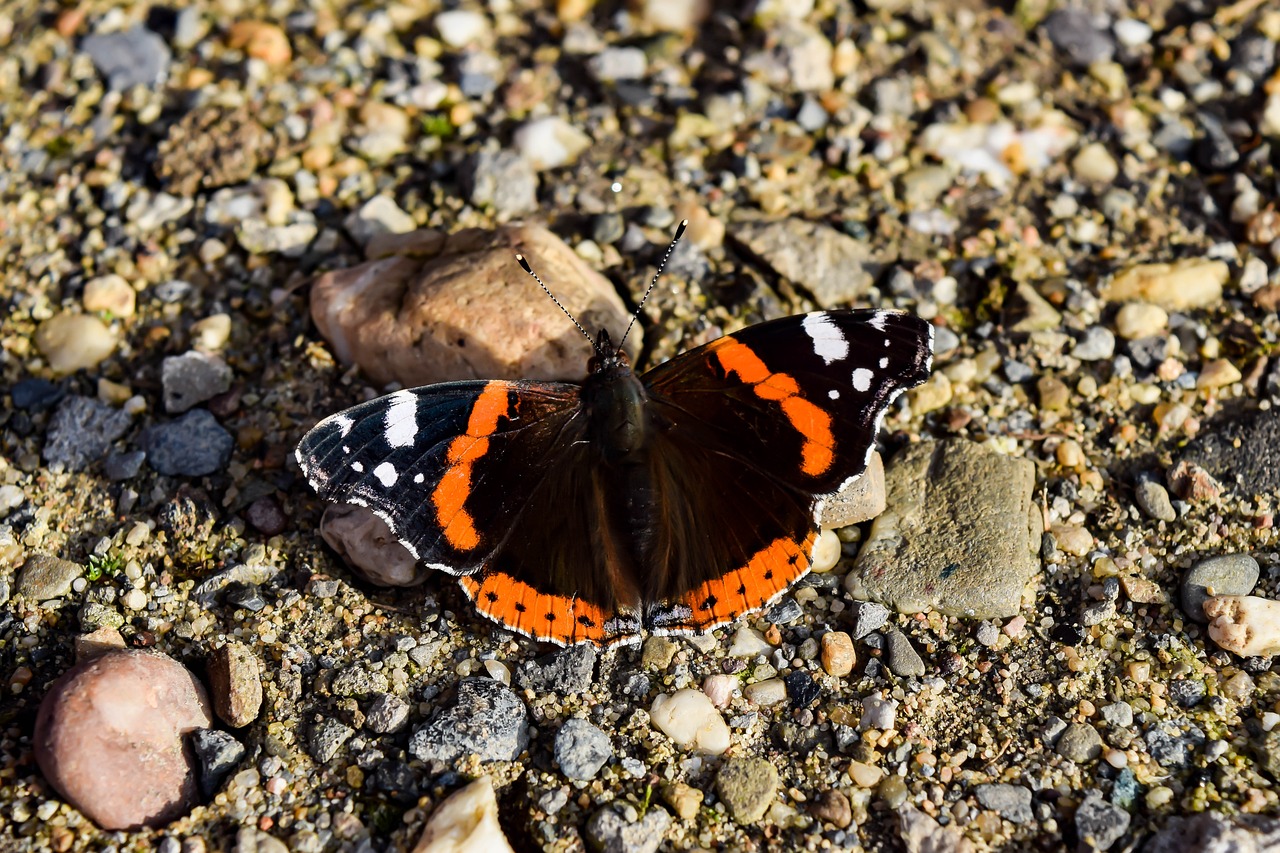
stereotype and its implications for cultural heritage and identity.
The stereotype of the "Noble Savage" holds significant implications for both cultural heritage and identity within indigenous communities. This myth perpetuates a distorted image of indigenous peoples as inherently pure, noble, and untainted by civilization. Such portrayals not only oversimplify the complexities of indigenous cultures but also undermine their rich histories and contemporary realities. By reducing indigenous peoples to romanticized stereotypes, the "Noble Savage" concept diminishes the diversity and agency of these communities, ultimately eroding their cultural heritage and sense of identity.
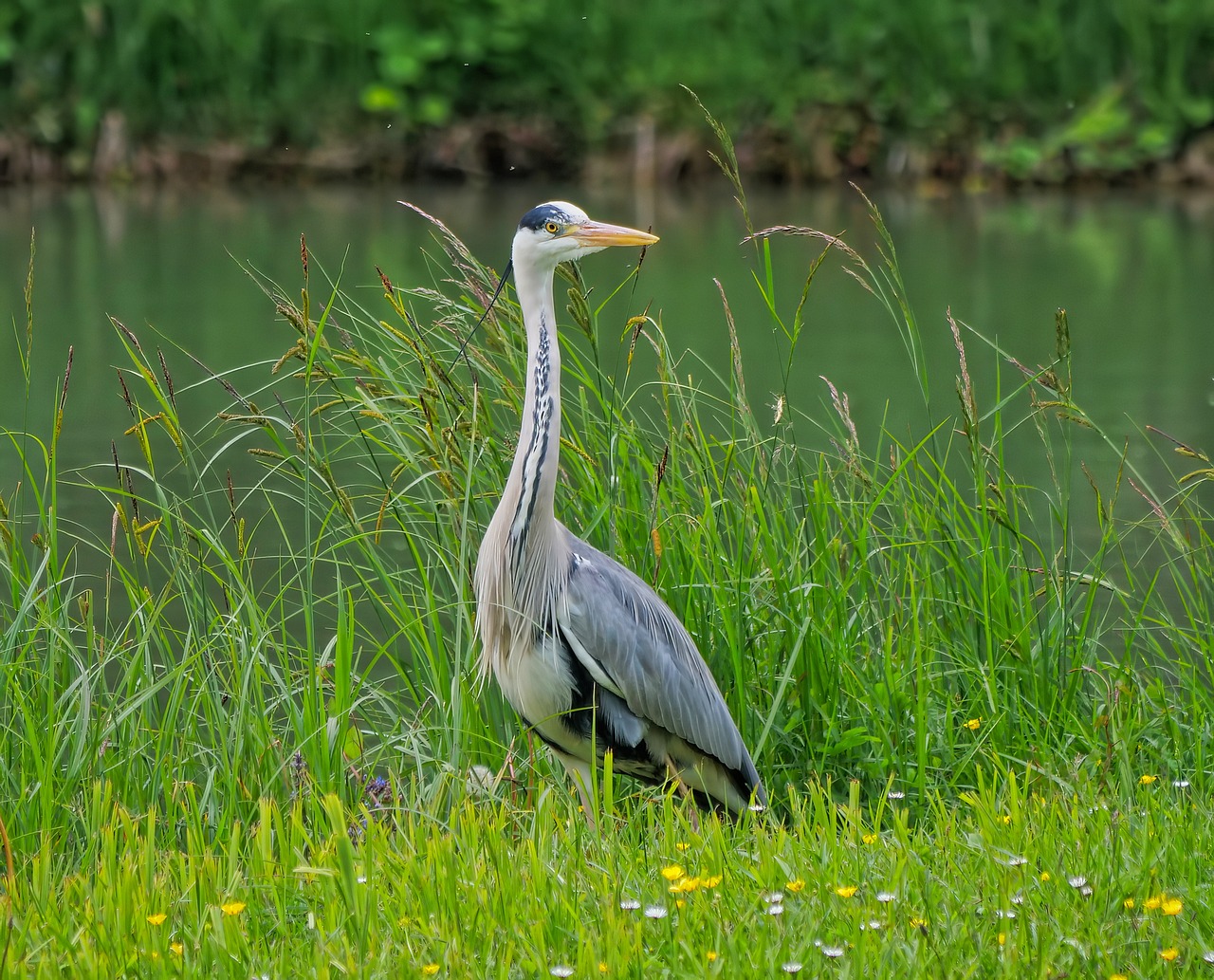
Alternative Narratives
When exploring the concept of in archaeology, it is crucial to delve into frameworks that challenge the traditional notion of the "Noble Savage" and prioritize the voices and perspectives of indigenous communities. These alternative narratives offer a more nuanced and culturally sensitive approach to understanding prehistoric societies, moving away from stereotypes and romanticized views.
One alternative narrative that has gained traction in archaeological discourse is the emphasis on collaborative research with indigenous communities. By actively involving these communities in the interpretation and analysis of archaeological findings, a more holistic understanding of the past can be achieved. This approach not only challenges the notion of the "Noble Savage" but also promotes a more inclusive and respectful engagement with cultural heritage.
Furthermore, some scholars advocate for a decolonization of archaeological practices, which involves critically examining the biases and power dynamics that have influenced the field. By deconstructing colonialist ideologies and challenging Eurocentric perspectives, archaeologists can create space for diverse narratives that reflect the complexity and diversity of indigenous cultures.
Alternative narratives also highlight the importance of recognizing the agency and resilience of indigenous peoples throughout history. By acknowledging their contributions to shaping the landscapes and histories we study, archaeologists can move beyond simplistic portrayals of indigenous cultures as passive or primitive. This shift in perspective allows for a more dynamic and multifaceted understanding of the past.

Noble Savage
The concept of the "Noble Savage" has long been a contentious topic in the field of archaeology, sparking debates and discussions about its implications for understanding indigenous cultures. The idea of the Noble Savage originated in colonialist narratives that portrayed indigenous peoples as inherently pure, harmonious with nature, and morally superior to Western societies. This romanticized view of prehistoric societies has influenced archaeological interpretations for centuries, shaping how we perceive and study ancient cultures.
Colonial ideologies played a significant role in perpetuating the Noble Savage myth, as they often depicted indigenous peoples as noble and virtuous to justify the exploitation and domination of their lands and resources. This distorted lens has had lasting effects on how archaeological findings are interpreted, leading to biased representations of indigenous cultures and reinforcing harmful stereotypes.
In modern times, there has been a growing awareness of the problematic nature of the Noble Savage concept in archaeology. Critics argue that it oversimplifies complex societies, ignores the diversity of indigenous cultures, and undermines the agency and autonomy of indigenous communities. Efforts to decolonize archaeological practices and narratives have been gaining momentum, with scholars and researchers advocating for more inclusive and respectful approaches to studying the past.
Indigenous communities themselves have been vocal about their perspectives on the Noble Savage stereotype, highlighting how it impacts their cultural heritage and identity. Many reject the romanticized image of the Noble Savage, emphasizing the need for nuanced and culturally sensitive interpretations that reflect their lived experiences and knowledge.
Alternative narratives that challenge the Noble Savage myth are emerging within the field of archaeology, offering new frameworks for understanding prehistoric societies. These approaches prioritize indigenous voices and perspectives, centering the experiences and contributions of indigenous peoples in shaping our understanding of the past.
As we navigate the ethical considerations surrounding the perpetuation of the Noble Savage stereotype in archaeological research, it becomes clear that promoting respectful and inclusive narratives is crucial. By acknowledging the complexities of indigenous cultures and histories, archaeologists can move towards more ethical and equitable practices that honor the diversity and richness of human experiences.
Looking ahead, the future of archaeology holds the potential to move beyond the limitations of the Noble Savage trope and embrace more nuanced and culturally sensitive approaches to studying the past. By centering indigenous perspectives, challenging stereotypes, and fostering collaboration with indigenous communities, archaeologists can pave the way for a more inclusive and ethical practice of uncovering and preserving our shared heritage.

myth and prioritize indigenous voices and perspectives.
Exploring the historical context and modern interpretations of the Noble Savage concept in archaeology, shedding light on its problematic nature and impact on indigenous communities.
Tracing the roots of the Noble Savage idea in archaeological discourse and its connection to colonialist narratives and romanticized views of prehistoric societies.
Discussing how colonial ideologies shaped the perception of indigenous peoples as noble savages to justify exploitation and domination.
Examining how the Noble Savage myth influences interpretations of archaeological findings and perpetuates stereotypes about indigenous cultures.
Exploring contemporary criticisms of the Noble Savage concept in archaeology and efforts to decolonize archaeological practices and narratives.
Highlighting the perspectives of indigenous communities on the Noble Savage stereotype and its implications for cultural heritage and identity.
Exploring alternative frameworks for understanding prehistoric societies that challenge the Noble Savage myth and prioritize indigenous voices and perspectives.
Discussing the ethical implications of perpetuating the Noble Savage stereotype in archaeological research and the importance of promoting respectful and inclusive narratives.
Looking ahead at the potential for archaeology to move beyond the Noble Savage trope and embrace more nuanced and culturally sensitive approaches to studying the past.
When addressing the Noble Savage myth, it is crucial to prioritize the voices and perspectives of indigenous communities. By centering indigenous knowledge and experiences, archaeology can move towards a more inclusive and accurate representation of the past. This approach challenges the traditional narratives that have marginalized indigenous peoples and fosters a more respectful and collaborative relationship between archaeologists and indigenous communities.
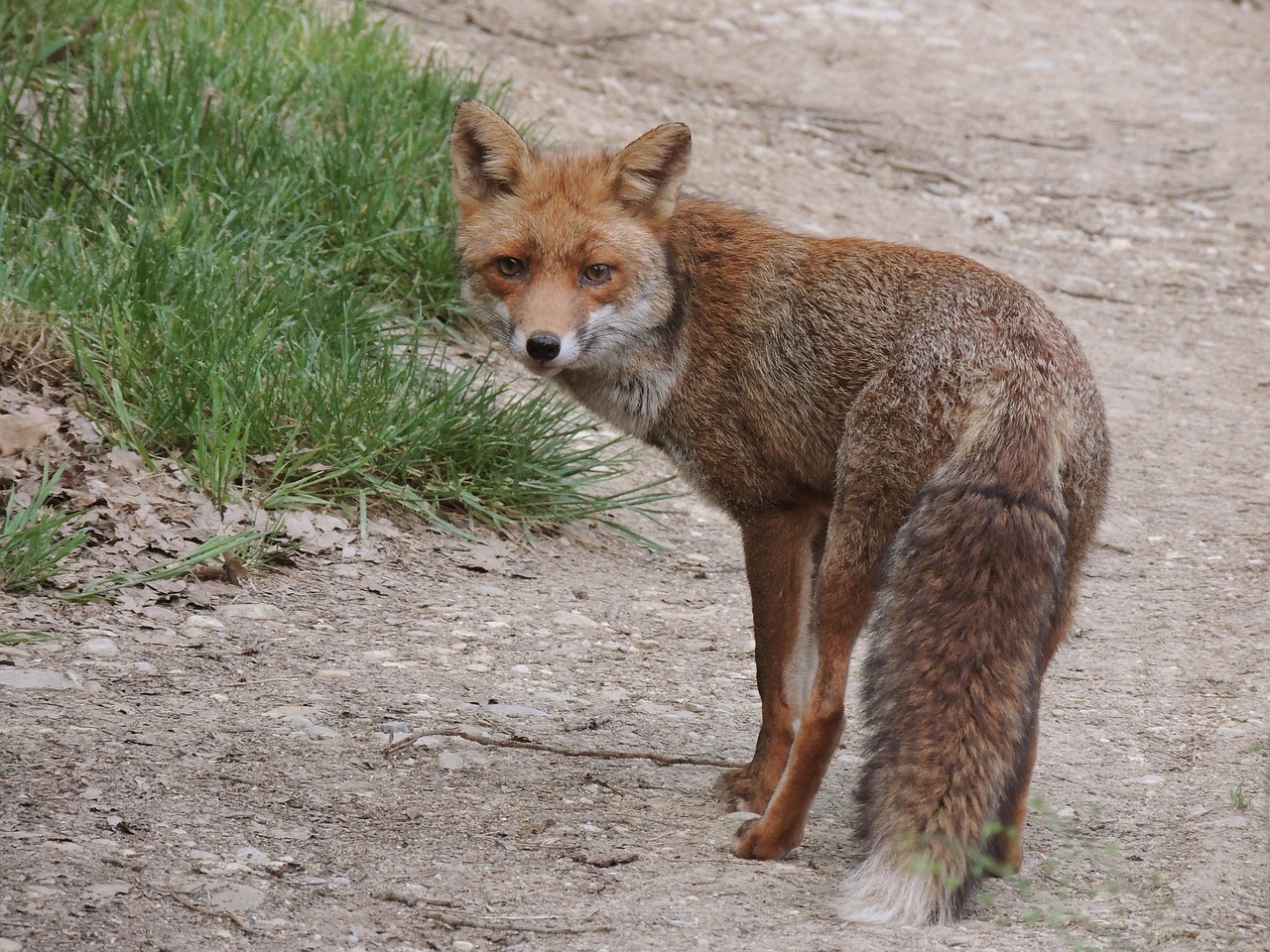
Ethical Considerations
When delving into the realm of archaeology and exploring the concept of the Noble Savage, it is crucial to address the that arise from perpetuating such stereotypes in research and discourse. By continuing to uphold the notion of indigenous peoples as inherently noble and untainted by civilization, archaeologists run the risk of essentializing and homogenizing diverse cultures, stripping them of their complexity and agency.
This perpetuation of the Noble Savage myth not only distorts historical narratives but also has real-world implications for contemporary indigenous communities. It can reinforce harmful stereotypes, undermine indigenous sovereignty, and perpetuate power imbalances in the field of archaeology. As researchers, it is our responsibility to critically examine the narratives we construct and the impact they have on the communities whose histories we seek to uncover.
Furthermore, from an ethical standpoint, it is essential to consider the representation of indigenous voices in archaeological research. Are we centering indigenous perspectives and knowledge in our interpretations, or are we imposing external frameworks that may not align with the lived experiences of these communities? By prioritizing collaboration, consultation, and reciprocity in our research practices, we can work towards a more ethical and inclusive approach to studying the past.
Ultimately, the surrounding the Noble Savage concept in archaeology call for a shift towards greater reflexivity, humility, and respect in our engagements with indigenous heritage. It is through acknowledging the complexities of history, embracing diverse narratives, and amplifying marginalized voices that we can move towards a more ethical and equitable practice of archaeology.
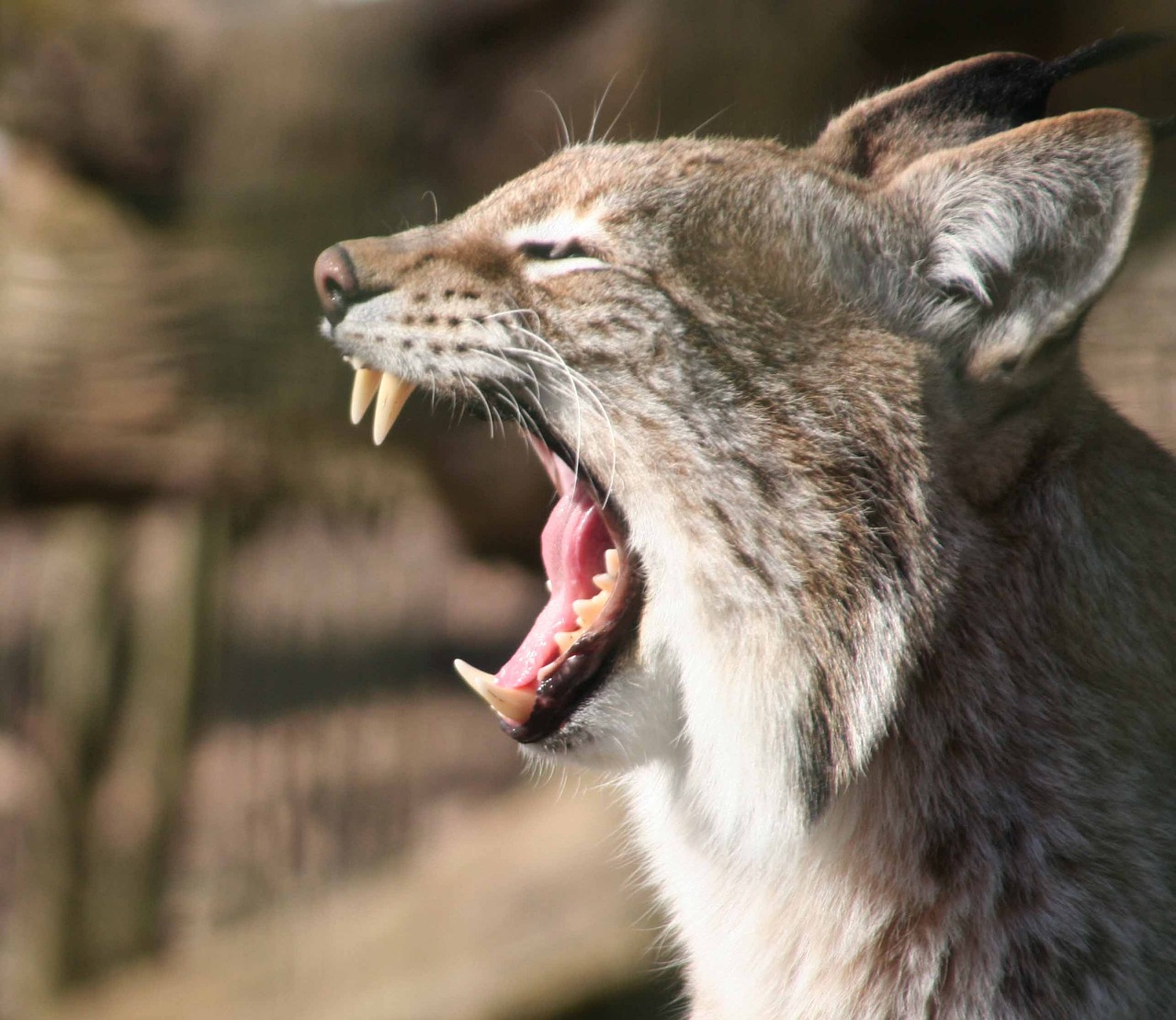
Noble Savage
Exploring the historical context and modern interpretations of the concept in archaeology, shedding light on its problematic nature and impact on indigenous communities.
Tracing the roots of the idea in archaeological discourse and its connection to colonialist narratives and romanticized views of prehistoric societies.
Discussing how colonial ideologies shaped the perception of indigenous peoples as noble savages to justify exploitation and domination.
Examining how the myth influences interpretations of archaeological findings and perpetuates stereotypes about indigenous cultures.
Exploring contemporary criticisms of the concept in archaeology and efforts to decolonize archaeological practices and narratives.
Highlighting the perspectives of indigenous communities on the stereotype and its implications for cultural heritage and identity.
Exploring alternative frameworks for understanding prehistoric societies that challenge the myth and prioritize indigenous voices and perspectives.
Discussing the ethical implications of perpetuating the stereotype in archaeological research and the importance of promoting respectful and inclusive narratives.
Looking ahead at the potential for archaeology to move beyond the trope and embrace more nuanced and culturally sensitive approaches to studying the past.
The concept of the has long been intertwined with archaeological interpretations, often portraying indigenous peoples as inherently pure and virtuous. This notion, rooted in colonialist ideologies, has perpetuated stereotypes and distorted understandings of prehistoric societies. The myth has influenced archaeological narratives, shaping how we view the past and impacting the present-day perceptions of indigenous cultures.
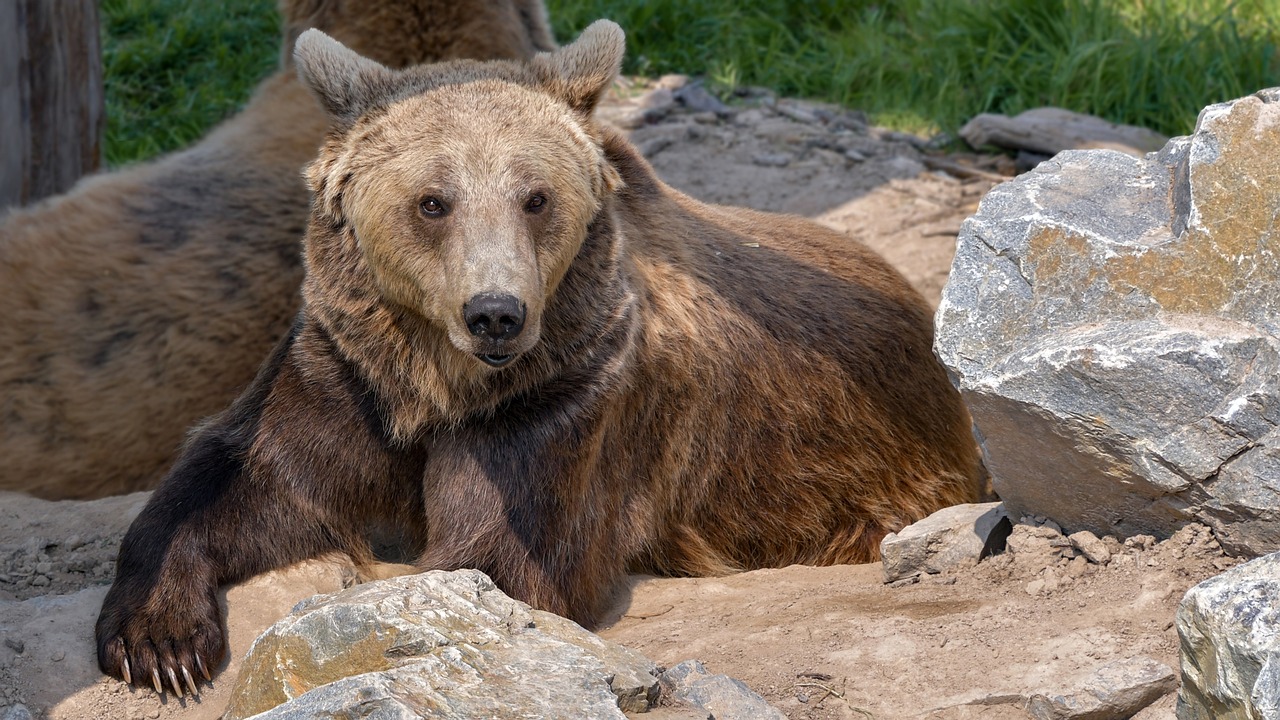
stereotype in archaeological research and the importance of promoting respectful and inclusive narratives.
Exploring the historical context and modern interpretations of the Noble Savage concept in archaeology, shedding light on its problematic nature and impact on indigenous communities.
Tracing the roots of the Noble Savage idea in archaeological discourse and its connection to colonialist narratives and romanticized views of prehistoric societies.
Discussing how colonial ideologies shaped the perception of indigenous peoples as noble savages to justify exploitation and domination.
Examining how the Noble Savage myth influences interpretations of archaeological findings and perpetuates stereotypes about indigenous cultures.
Exploring contemporary criticisms of the Noble Savage concept in archaeology and efforts to decolonize archaeological practices and narratives.
Highlighting the perspectives of indigenous communities on the Noble Savage stereotype and its implications for cultural heritage and identity.
Exploring alternative frameworks for understanding prehistoric societies that challenge the Noble Savage myth and prioritize indigenous voices and perspectives.
Discussing the ethical implications of perpetuating the Noble Savage stereotype in archaeological research and the importance of promoting respectful and inclusive narratives.
Looking ahead at the potential for archaeology to move beyond the Noble Savage trope and embrace more nuanced and culturally sensitive approaches to studying the past.
When it comes to the stereotype in archaeological research, it is crucial to acknowledge the damaging effects of perpetuating the Noble Savage myth. By portraying indigenous peoples as inherently noble and untainted by civilization, this stereotype undermines the complexity and diversity of indigenous cultures. It is essential to recognize the harmful impact of such representations and strive to promote narratives that respect the rich heritage and identities of indigenous communities. Embracing inclusive and respectful perspectives in archaeological research not only fosters greater understanding and appreciation but also contributes to the decolonization of academic discourse.
- What is the origin of the "Noble Savage" concept?
- How do colonialist influences shape archaeological interpretations?
- Why is it important to consider community perspectives in archaeology?
- What are some alternative narratives to the "Noble Savage" myth?
- What ethical considerations are involved in challenging stereotypes in archaeological research?
- How can archaeology move towards more culturally sensitive approaches?

Future Directions
Exploring the historical context and modern interpretations of the Noble Savage concept in archaeology, shedding light on its problematic nature and impact on indigenous communities.
Tracing the roots of the Noble Savage idea in archaeological discourse and its connection to colonialist narratives and romanticized views of prehistoric societies.
Discussing how colonial ideologies shaped the perception of indigenous peoples as noble savages to justify exploitation and domination.
Examining how the Noble Savage myth influences interpretations of archaeological findings and perpetuates stereotypes about indigenous cultures.
Exploring contemporary criticisms of the Noble Savage concept in archaeology and efforts to decolonize archaeological practices and narratives.
Highlighting the perspectives of indigenous communities on the Noble Savage stereotype and its implications for cultural heritage and identity.
Exploring alternative frameworks for understanding prehistoric societies that challenge the Noble Savage myth and prioritize indigenous voices and perspectives.
Discussing the ethical implications of perpetuating the Noble Savage stereotype in archaeological research and the importance of promoting respectful and inclusive narratives.
Looking ahead at the potential for archaeology to move beyond the Noble Savage trope and embrace more nuanced and culturally sensitive approaches to studying the past.

Noble Savage
Exploring the historical context and modern interpretations of the concept in archaeology, shedding light on its problematic nature and impact on indigenous communities.
Tracing the roots of the idea in archaeological discourse and its connection to colonialist narratives and romanticized views of prehistoric societies.
Discussing how colonial ideologies shaped the perception of indigenous peoples as noble savages to justify exploitation and domination.
Examining how the myth influences interpretations of archaeological findings and perpetuates stereotypes about indigenous cultures.
Exploring contemporary criticisms of the concept in archaeology and efforts to decolonize archaeological practices and narratives.
Highlighting the perspectives of indigenous communities on the stereotype and its implications for cultural heritage and identity.
Exploring alternative frameworks for understanding prehistoric societies that challenge the myth and prioritize indigenous voices and perspectives.
Discussing the ethical implications of perpetuating the stereotype in archaeological research and the importance of promoting respectful and inclusive narratives.
Looking ahead at the potential for archaeology to move beyond the trope and embrace more nuanced and culturally sensitive approaches to studying the past.
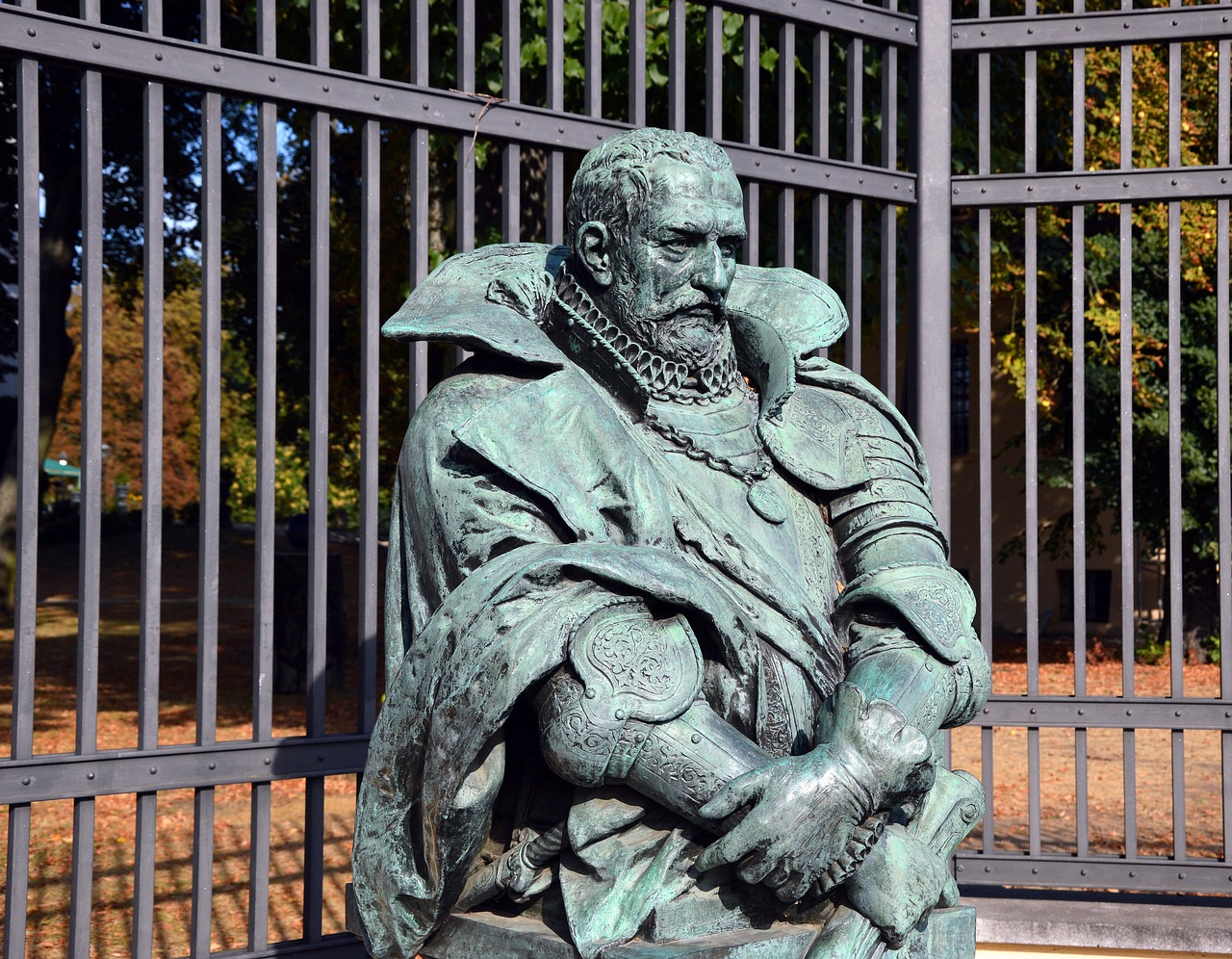
trope and embrace more nuanced and culturally sensitive approaches to studying the past.
When it comes to moving beyond the trope of the Noble Savage in archaeology, it is crucial for researchers to adopt more nuanced and culturally sensitive approaches to studying the past. This shift requires a deep reflection on the biases and stereotypes that have influenced archaeological interpretations for centuries. By acknowledging the limitations of the Noble Savage concept and actively challenging its problematic implications, archaeologists can pave the way for a more inclusive and respectful engagement with indigenous cultures and histories.
Frequently Asked Questions
- What is the origin of the "Noble Savage" concept in archaeology?
The "Noble Savage" concept in archaeology originated as a romanticized view of prehistoric societies, often portrayed as inherently good and uncorrupted by civilization. It has its roots in colonialist narratives that sought to justify exploitation and domination of indigenous peoples.
- How does the "Noble Savage" myth impact archaeological interpretations?
The "Noble Savage" myth influences archaeological interpretations by perpetuating stereotypes about indigenous cultures. It can lead to biased perspectives and misrepresentations of prehistoric societies, hindering a more nuanced understanding of the past.
- What are some modern critiques of the "Noble Savage" concept in archaeology?
Contemporary criticisms of the "Noble Savage" concept in archaeology focus on its problematic nature and the need to decolonize archaeological practices. Efforts are being made to challenge this stereotype and prioritize indigenous voices and perspectives in archaeological research.
- Why is it important to consider ethical implications in perpetuating the "Noble Savage" stereotype?
Considering the ethical implications of perpetuating the "Noble Savage" stereotype is crucial in promoting respectful and inclusive narratives in archaeology. It is essential to recognize the impact of such stereotypes on indigenous communities and work towards more culturally sensitive approaches in research.
- What are the future directions for archaeology in moving beyond the "Noble Savage" trope?
The future of archaeology lies in embracing more nuanced and culturally sensitive approaches to studying the past, moving beyond the limitations of the "Noble Savage" trope. By prioritizing indigenous perspectives and challenging stereotypes, archaeology can contribute to a more inclusive and accurate representation of history.


